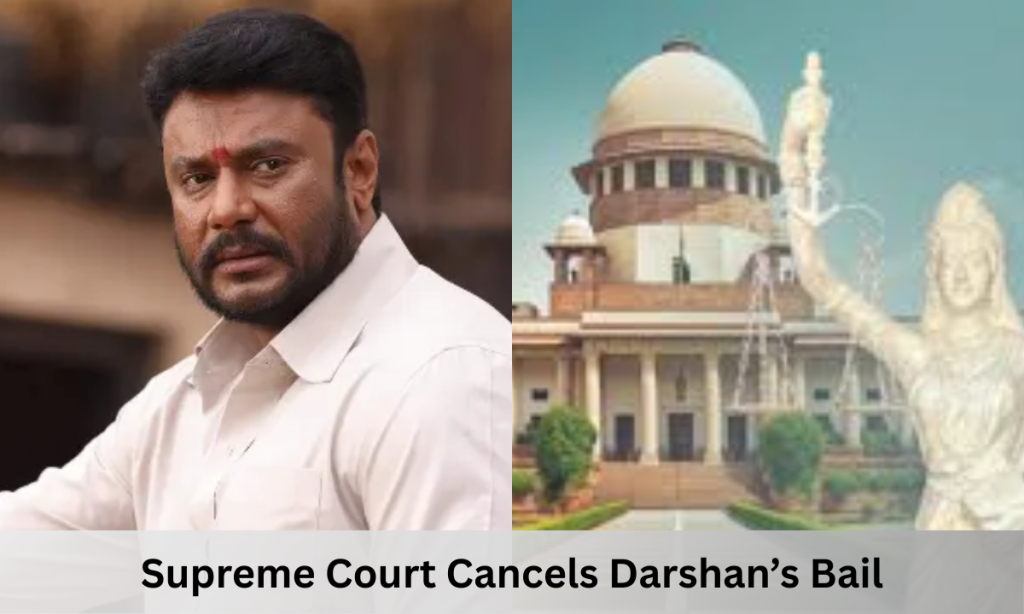New Delhi, August 14, 2025 – In a landmark ruling that reinforces the sanctity of the rule of law, the Supreme Court of India has cancelled the bail previously granted to Kannada film star Darshan Thoogudeepa, his co-accused, and others in the high-profile Renukaswamy murder case.
Background of the Case
Darshan, along with actress Pavithra Gowda and several others, is accused of the brutal abduction and killing of Renukaswamy, a 33-year-old auto driver and admirer, whose body was discovered in Bengaluru in June 2024. The victim had allegedly sent offensive messages to Pavithra, triggering the alleged crime.
Despite the Sessions Court’s initial denial, the Karnataka High Court granted regular bail on December 13, 2024—a decision now overturned by the Supreme Court.
Supreme Court’s Key Observations & Legal Reasoning
1. Legal Infirmities in the High Court Order
The bench of Justices J. B. Pardiwala and R. Mahadevan highlighted that the High Court’s bail grant lacked “special or cogent reasons” under Sections 302 (murder), 120B (criminal conspiracy), and 34 (common intent) of the IPC. They criticized it as a “mechanical exercise of discretion” and a premature prejudgment before trial.
2. Threat to Fair Trial
The apex court emphasized that hearing witness statements—including contradictions and delays—is the prerogative of the trial court, not a basis for bail. The bail order risked influencing witness testimony and derailing trial proceedings.
3. Upholding the Equality Before Law Principle
Underscoring Article 14 of the Constitution, the court reiterated that “no one is above the law”—a striking directive against VIP treatment in the judiciary.
4. Zero Tolerance for Privilege in Custody
The court warned authorities against granting any five-star or preferential treatment in jail. If such privileges are discovered, suspension and disciplinary actions would follow.
5. Immediate Consequences and Trial Directions
The bail order of December 2024 was quashed; all accused—Darshan, Pavithra, and others—are to be taken back into custody immediately. The court directed that the trial proceed expeditiously and be decided on the merits without undue delay.
Legal Interpretation and Implications
1. SC Exercised Extraordinary Jurisdiction (Section 439(2) CrPC)
The Supreme Court applied its exceptional bail-review powers, emphasizing democracy’s demand that privilege cannot shield wrongdoing.
2. Clear Pre-Trial Protocol
The ruling affirms that bail decisions should rest solely on relevant legal standards—without trial-level evidence assessment or witness credibility probes.
3. Template for Future High-Stakes Cases
This decision sets a strong precedent that celebrity status or public standing cannot compromise judicial process or fairness.
Conclusion
The Supreme Court’s August 2025 verdict in the Darshan bail cancellation marks a pivotal assertion of judicial equity. It underscores that celebrity privilege holds no place in criminal jurisprudence and fortifies safeguards against arbitrary judicial discretion. For legal professionals and the public alike, it exemplifies how the Courts act as guardians of fair process and common humanity—irrespective of one’s stature.





